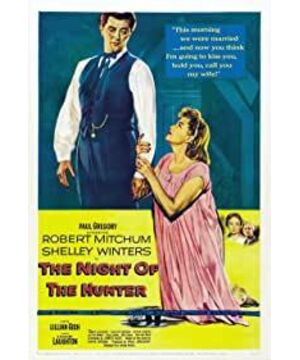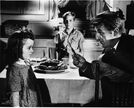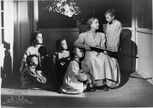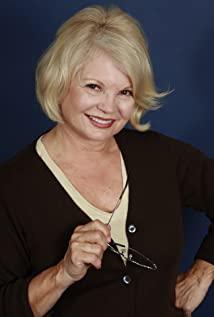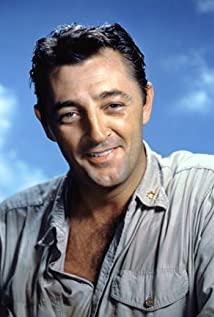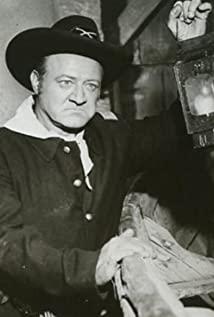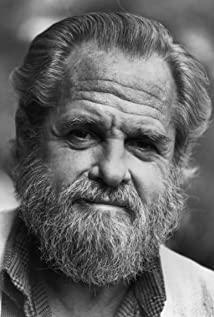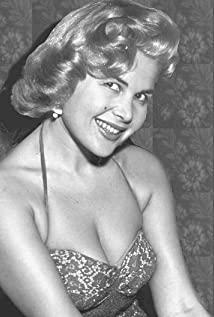In the modern industrialized society, we don't need God. Science has brought the development of science and technology, and machines satisfy our material pursuit. How much human beings think that it is possible to move towards an ideal life in this way, to reach a utopian state in which the ultimate development of science brings complete material satisfaction and complete spiritual comfort. So we abandoned God, because the turmoil of war and the economic depression made us completely disappointed in God. People no longer even ask where God is at the moment of frustration. People hate God.-Those wars and exploitation are often just that. In the name of God.
However, the war did not just become history. The application of science and technology made it more thorough; exploitation was not eliminated by scientific progress. In front of the cold machinery in the factory, the laborers became an accessory to labor—that is to say. Laborers are not only economically exploited, but they also lose their dignity in labor activities where machines are gradually dominating. We have never felt lonely in the crowd like today, feeling helpless in the face of the world. While we abandon God, God also abandons us. The only film independently directed by Charles Laughton in the
movie part
is The Night of the Hunter (The Night of the Hunter) released in 1955. IMDB has a score of 8.0 and is hailed as a classic of film noir and Cult.
The plot is similar to a fairy tale. The father Ben received 10,000 yuan from the robbery and murder. Before he was arrested, he hid in his daughter's doll and asked his son John to make two promises: protecting his sister Pearl and keeping the secret of money strictly. The father was sentenced to hang. Mother Willa raised two children alone and was ashamed of the missing 10,000 yuan. One day, a missionary, Harry Powell, came to this family, and with his mouthful of justice, he won the mother's heart and became the stepfather of the children. Harry is a decent guy. He was sentenced to jail for stealing a car. He happened to be in the same cell with John's father. He learned about the money from Ben's dream, so he came to the widow and orphan with a ghost. The mother was quickly murdered cruelly, sinking the corpse at the bottom of the river. The remaining two brothers and sisters dealt with this demon. They finally fled their hometown and took a boat down the river to the farm of the old lady Rachel Cooper. The old lady adopted orphans and outcasts, and worked with the children on the farm to survive. She took in John and Pearl brothers and sisters. As life gradually calmed down, Harry, the evil missionary, followed him. He put on the face of God's messenger. He repeated the old trick but was seen through by Mrs. Cooper, and finally fell into the law.
The storytelling of the film is straightforward, and the actors perform with a strong stage style. The audience can see it very clearly. However, the film is not superficial. The film is full of various symbols, and contradictions are ubiquitous in the characters and the plot. The director intends to use simple narrative techniques to cause the audience to think about the true meaning of the film.
Interpreting the characters and symbolism in this film is a convenient way to understand the film. The background of the film is about the Great Depression in the 20th century. Social turmoil made people feel confused. Insecure people are both aggressive and extremely vulnerable. In a capitalist society, individuals are just a part of a huge economic machine. They feel their own insignificance in the face of a powerful world. The money-oriented society creates a vacuum of belief and makes people’s spirits unreliable. Evil takes advantage of the emptiness and takes advantage of the helplessness of people to control their hearts.
The mother Willa in the film is a typical example. She was easily deceived by the story of Harry’s ridiculous Hand of Hatred and Hand of Love, the missionary. She married with each other regardless of their origin and life, and she still believed that after Harry’s fierce appearance was revealed. Harry didn't marry himself for the ten thousand dollars. There are also the old women in the bakery who believe in Harry just because of his appearance. Together with the hysterical congregation in the church and the angry people at the end of the film, they symbolize a huge number of fools. Father Ben has only appeared twice in the film and asked his son to make two promises: protecting his sister with his life and keeping money secrets, even to his mother. The altruism of the first promise shows that he is not a wicked person, and the second promise shows his distrust of the world, which is caused by the dark society and the hardships of life. He chose to use violence (killing, robbery) to resist, he symbolized the revolutionaries. In the end, Ben ended up hanged, without sympathy, indicating that violent and blind resistance would not succeed. Uncle Birdie is a friend of John’s, an old captain who lives by the river. He is an out-and-out drunkard. He uses alcohol to numb his thoughts about abandoning his wife and the glorious life of the captain. He is a symbol of decadence and aging. Fathers. After discovering Willa's body in the water, Uncle Birdie not only didn't go to the police, but was afraid that he was suspected. When Harry chased and killed the drunken John and Pearl, he was so drunk and unconscious when they asked him for help. The role of Ruby is abrupt, because the main characters in the film are either adults or ignorant siblings. Ruby, an adolescent girl, is undoubtedly used by the director to supplement the character fault. The overall design of the characters is to reflect the situation of the entire society. Ruby is a symbol of the younger generation. Just because of the rhetoric of the preacher, Ruby, who is still obsessed with him even after Harry was tried and scolded by the world, shows the desire of young people for love and identification. This reflects the lack of people’s childhood and explains the society. The sick seeds were planted long ago, and the young people are the future masters, so the sickness will continue.
The main characters in the film are the missionary Harry, Mrs. Cooper, brother and sister John and Pearl. Let's talk about Harry the missionary first. He is a symbol of evil, which was clearly expressed by the woman who died from the beginning of the film immediately following Harry's appearance. And his missionary status is worth pondering. The director has created a false prophet and a demon in sheep's clothing for us, but his tricks are simple, and his tricks are nothing more than quotations from the Bible and a ridiculous story of the hand of hatred and the hand of love. Nevertheless, people still fall into the trap, because the hesitating people blindly believe in any opportunity that can explain and get out of the difficult situation like a straw for life. This is especially typical for the hysterical congregation in the church in the film. Excessive religious fanaticism shows that people do not care about religion itself, but think that religion can remove their suffering. The devil took advantage of this,-he always used people's desires, but the indirect way of the devil exposed his weakness, as long as he didn't buy his account-just like John and Mrs. Cooper- He has nothing to do.
Mrs. Cooper is a symbol of justice. She tells the children the Bible stories in stark contrast to the face of the missionary Harry. In the film, Mrs. Cooper appears as a strict parent. She is not hypocritical and kind, because love does not need to be concealed. She does not put God on her lips, and the self-confidence brought by firm belief is integrated into her every word and deed. The story of the missionary can’t deceive her. After seeing through the devil’s disguise, she took out the gun decisively. After Harry was shot and escaped, she calmly called the police for help... Discerning right from wrong, brave and strong, not addicted to killing, Mrs. Cooper was portrayed as a character Incarnation of God.
The pure lamb, the child who endures and keeps his promise, and his ignorant sister, John and Pearl are the symbols of babies. They are chased and killed and leaving their hometown is like leaving their mother’s womb. They float along the river in a boat, symbolizing growth. The frogs, tortoises, owls, and rabbits along the way are arranged in the order of vertebrate evolution from lowest to highest, and the last sheep appears. It symbolizes that the beginning of human beings is like a piece of white paper, and the director uses gentle animals to express the views of human nature. Then becoming a young man lacking in love and identity, becoming a foolish or angry revolutionary due to the oppression of life, and finally falling into the end of a numb, decadent and aging father, or another demon, is the sorrow of society. At night in Mrs. Cooper's garden, the ferocious owl caught the weak hare. The old lady said to herself: It's a hard world for little things (for the weak beings, this is a cruel world). With humanitarian care, the film condemns the harm caused to mankind by the unfair social system.
This is a cruel world, like a hunter facing the night, and we are the prey. Since the hunters are cunning (pretending to be false prophets), fierce (the missionary Harry murdered 25 women), and omnipresent (the missionary’s singing is like a shadow on the night when John and Pearl brothers and sisters are resting on the beach), how can we escape Or against it? The answers given in the film are not new, but just verses or precepts from the Bible. The difference between a true prophet and a false prophet lies in whether faith is used as an end or as a tool. The same is true for whether we obey our own principles, morals, and whether our love is sincere.
The psychoanalytic part
The Night of the Hunter (Hunter's night) describes a crime, and at the same time it condemns the unreasonable social system and expresses the lives of people in the chaotic era. I saw the views and thoughts of many psychoanalysts, such as Freud, Fromm, Frankel, etc. I want to use some of the characters, pictures, and controversies in this film to expand the part of the film that involves psychoanalysis.
1. Characters: Spoon mother and son and detective mother and son-the absence of father
When writing a film review, I looked back at some clips of the film many times and was surprised to find an interesting place. In the film, the Spoon and the detective of the dessert shop both called the woman next to them a mother. This caught my attention. So I watched the film again and, as expected, there were only three fathers in the film. One of them is John’s father Ben, who was sentenced to death by hanging at the beginning of the film, and the other is the stepfather missionary Harry, who became a stepfather for his misconduct, and he is not a father at all. The third is the detective himself, he is the father. In the scene when he saw his sleeping child, he showed that he went out early and returned late at night due to work and had little contact with the child. So there is a lack of father in the film. George Frankl said in "The Unknown Ego": "As we have seen, the formation of the superego is carried out through introjection. The authority of the father is introjected into the ego, forming the superego. Core. We no longer confront our father as an external threat, but allow him to realize his wishes in our hearts, where he acts as an internal guard, guide or punisher, as our conscience and the eye for examining everything. "In a patriarchal society, the image of the father represents the superego, which is the upper part of the personality structure. It has a restraining effect on the impulse of the id. The judicial department specializes in ethics and makes people's behavior conform to social ethics, which is a personal morality. Core. (Shen Decan: Psychoanalytic Psychology, Zhejiang Education Press, 2005) The lack of father in the film expresses the loss of morality. The film also explains the lack of father, that is, Uncle Birdie. Uncle Birdie, as a symbol of his father’s generation, shows a state of aging and disconnected from the times, and is naturally abandoned by people. So what caused the previous superego image to be out of touch with the times, so that the lack of superego appeared? The reason is very complicated. Generally speaking, it is due to the development of productive forces that brings about changes in the economic environment and social systems. The irrationality of the social system puts people in a difficult position. In a capitalist society, the economy is supreme, morality becomes trivial, and the original beliefs cannot solve people's problems.
It is precisely because of the lack of father that people lose their spiritual support when life is difficult, so the false prophet and excessive religious fanaticism shown in the film appear.
2. Picture 1: The introspection meeting in the church-the escape from freedom
One scene in the film is the introspection meeting of the church, and the scene of religious fanaticism is shocking to outsiders. Mother Willa spoke out her sins aloud with excitement and scolded herself; her face was hideous, her eyes widened and absent, and her body kept swaying back and forth; when it came to the important points, the congregants agreed in unison. This kind of behavior is typical self-abuse, but in the film, it can be seen later that since Willa married the missionary Harry, through the fallacy of her husband wearing a sacred cloak—the missionary Harry rejected Willa’s sexual needs with sophistry, and Sexual needs are said to be evil-and religious "baptism" seems to have found peace, so why? What is the essence of this peace?
The religious behavior in the film is very similar to the Lutheran and Calvinist sects (generally referred to as the new religion) that emerged after the Reformation. Frome mentioned the emergence of the new religion in the book "Escape from Freedom" and made a statement about it. Analyze the psychological level. After the dark Middle Ages, feudal society collapsed and capitalism was established. "Because man lost his fixed position in a closed society, he could not find the meaning of life." The goal is suspicious. He is threatened by powerful superhuman power, capital, and the market. Everyone has become a potential competitor, and his relationship with his compatriots has become hostile and alienated; he is free—that is, he is isolated Helpless and threatened by all parties." The reason why new religions can be established and developed is that they use the name of God to explain the causes of social changes and the causes of the status quo of morality and economy. The new religion declares that people are inherently sinful and that they are powerless in the face of fate. People must be completely surrendered to God to be saved. This is completely different from the medieval church's emphasis on human dignity, freedom of will, and the similarity between God and humans. People have the right to believe that they can obtain God's love. The idea of the new religion provides psychological comfort to people who have lost their sense of security and loneliness from a certain level, because since we are born guilty and our destiny cannot help but choose, it is inevitable to have today's hesitation and helplessness. The powerful and ruthless image of the new religion of God is a symbol of authoritarianism. Such a god has a sadistic connotation, and the tendency of believers to be abused in it is very obvious. Why is this? How can a good-natured person want to be abused? "The most common way of masochistic impulse is deep feeling of inferiority, powerlessness, and insignificance of the individual," Fromm said. "These people have a tendency to belittle themselves... These people show extremes very regularly. Rely on rights outside of oneself, others, institutions or nature". So what is the purpose of being abused, or what psychological goals can be achieved by being abused? Fromm's answer is: to get rid of the personal ego, to lose the ego, in other words, to remove the burden of freedom. The abuser has the abuser. In the eyes of the abuser, the abuser is powerful, so the person who has the urge to be abused loses his freedom by "seeking a person or power that he thinks is extremely powerful and surrendering it." To achieve. The God who is as powerful as the abuser provided by the new religion satisfies people's desire to dispel loneliness and helplessness by belittling and integrating with themselves.
In the film, Willa, a woman with a murderous ex-husband during the Great Depression, is neither rich nor inferior. Her loneliness and helplessness are obvious. But it's not just her alone. In a society where the economy is depressed and the system is irrational, who are the ordinary people who are not alone and helpless? False prophets like Harry the missionary use people's psychology to control people.
3. Picture 2: The
violent people-the desire to attack comes into consciousness. Every day, when we turn on the TV, the radio, and open the newspaper, there are more or less violent shadows in the news. Wars, crimes, terrorist attacks, demonstrations and so on are all around us. Although the media has exaggerated violence, the number and influence of violent incidents are indeed growing. There is "credit" for various things: economy, system, many radicalisms, media, art, and even liberation movements. We can't help asking, what psychologically causes violence, and what changes have occurred that have led to an increase in violence?
First of all, violence is a manifestation of the desire to attack. The desire to attack or aggression is the instinct that accompanies human beings to this world, although Freud classifies it as the instinct of death (which is manifested as a kind of opposition to the development of life). Power), but it is indispensable for human survival. Our ancestors obtained the nutrients necessary for survival (such as killing prey for food) and preserving ourselves (such as counterattack when faced with threats) through its external delivery. However, the instinct of death also has a negative effect. When human progress has differences in level, rich and poor, the desire to attack tends to point to the same kind. In order to maintain the cornerstone of civilization, the superego and morality are generated, and the desire to attack and other death instincts are excluded. Outside the consciousness, bury it in the subconscious. It can be said that squeezing the desire to attack into the subconscious is necessary for civilization to be able to maintain it. We can see that the law, morals, and the state have all contributed to this. They use methods such as suppression, replacement, and channeling to dispel and weaken the desire to attack. Or sublimation. However, as a kind of energy, the desire for aggression cannot be eliminated. When the repressive ability weakens, it re-enters our consciousness and controls our behavior. The weakening or even disappearance of the superego's power will bring such consequences. After the trial of the missionary Harry in the film, the people who were deceived and furious, were disappointed in God, they acted violently, and they wanted to control their consciousness of being attacked.
The God who symbolizes morality and commandment is the representative of the superego, and its absence allows various repressed subconscious forces to enter the consciousness. This is one of the main reasons for the increase in violence today. Our economy is developing rapidly and technology is advancing by leaps and bounds, but humanism is gradually disappearing. Economic benefits and work efficiency have replaced people themselves and are of concern to the world. People are threatened by spiritual existence. They cannot get recognition, love, loneliness and helplessness. They are abandoned by the economy and technology that we are proud of. How can we take into account morality, and how can we respect our parents and love our children? As a result, the superego decayed. The ego (representing the realistic part of the personality structure and the internalized psychological representation of both the original instinct and the external world) leans toward the id (at the deep level of the subconscious, composed of innate instincts and basic desires), instinct Drive controls our souls in the name of morality and social light. (Shen Decan: Psychoanalytic Psychology, Zhejiang Education Press, 2005)
4. Controversy: Depreciating the appearance of women-the beginning of moral decline
Except for Mrs. Cooper, all women in the film are ignorant and stupid. This brings the question of degrading women to The Night of the Hunter. I think the design of the film is not intended to belittle women.
When turbulence and chaos occur in a patriarchal society, women, as a group despised by society, will inevitably suffer the first and heaviest harm. Under the influence of the Oedipus complex, girls need their fathers more than boys. In addition to helping the girls to form their superego, their fathers must also give her the recognition of libido. The absence of a father (not the absence of a father, but the decline of the image of a father) will bring libido block to women, narcissistic hunger and thirst, and the lack of superego, which can seriously lead to various neuroses. Therefore, the portrayal of women in the film is the consequence of the absence of the father and the beginning of moral decline. And Mrs. Cooper, as a symbol of justice in the film, is the purpose of the director. The rational, moral, and humanitarian care promoted in the film is expressed by a woman, and it has a profound meaning: the motherly God is the true God, because she has love.
cyqueru
2008-8-23 early morning
View more about The Night of the Hunter reviews


